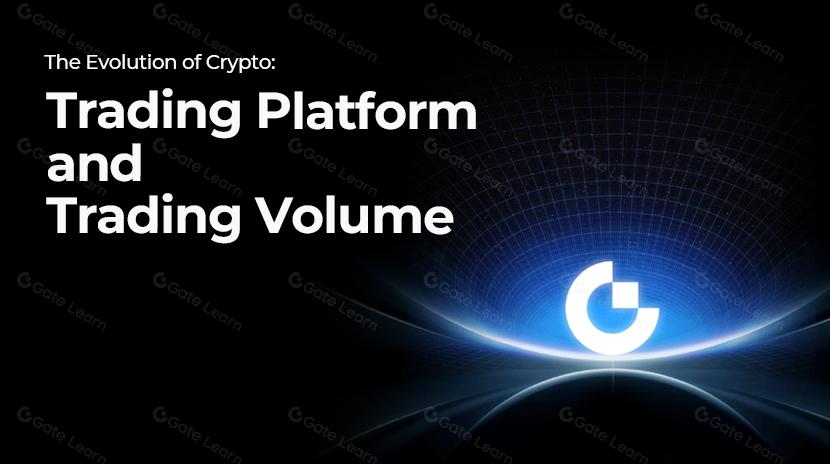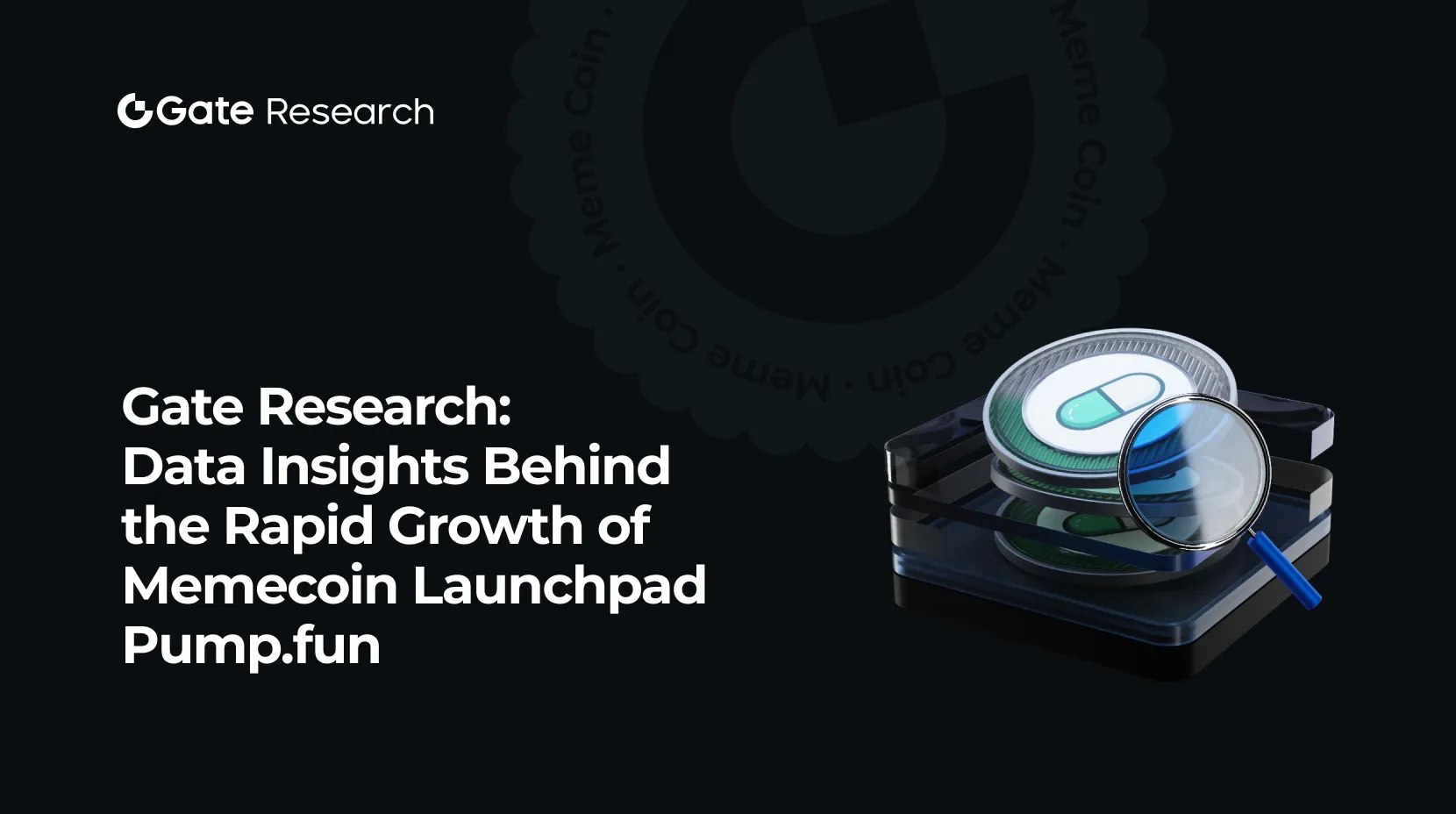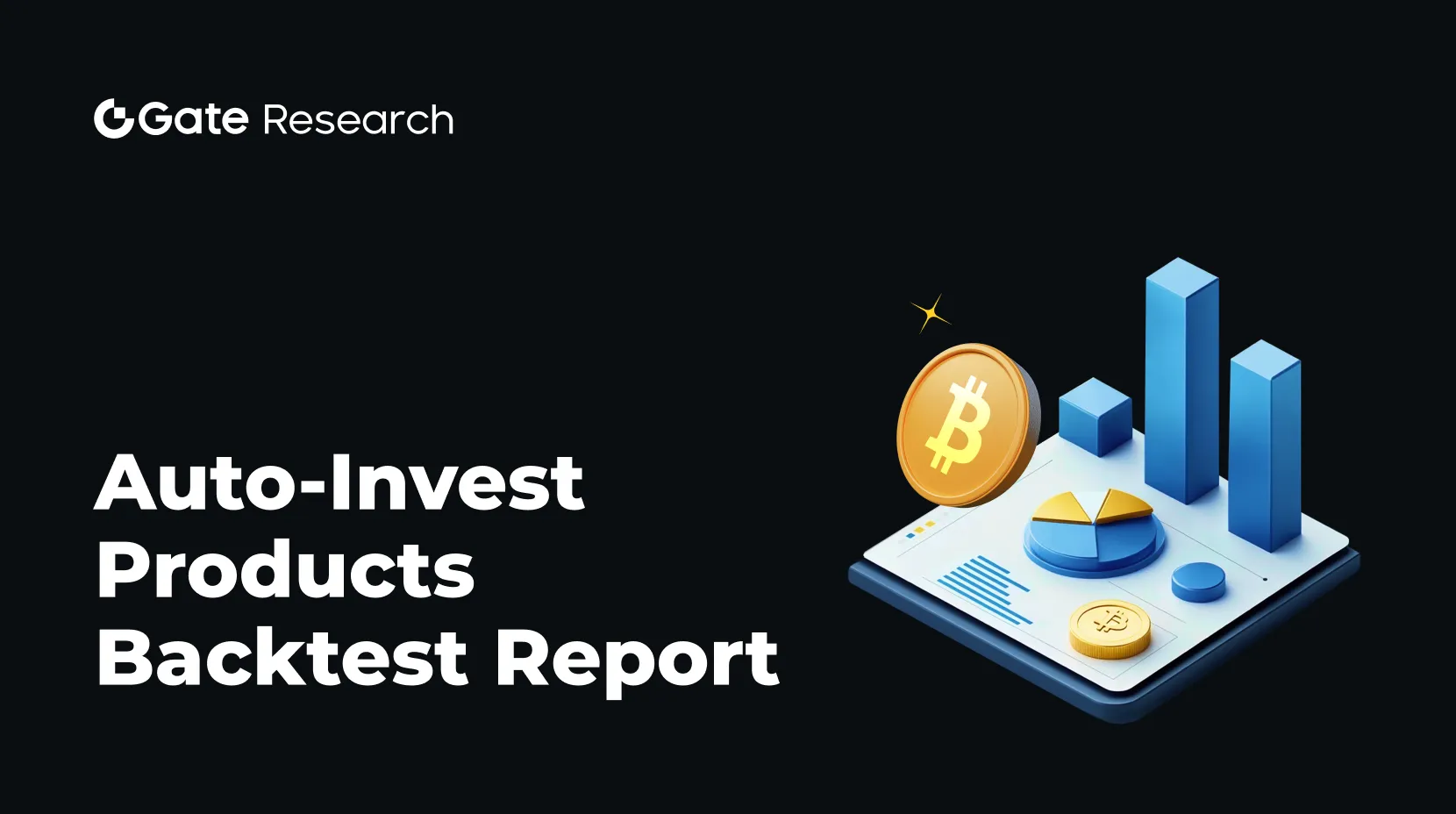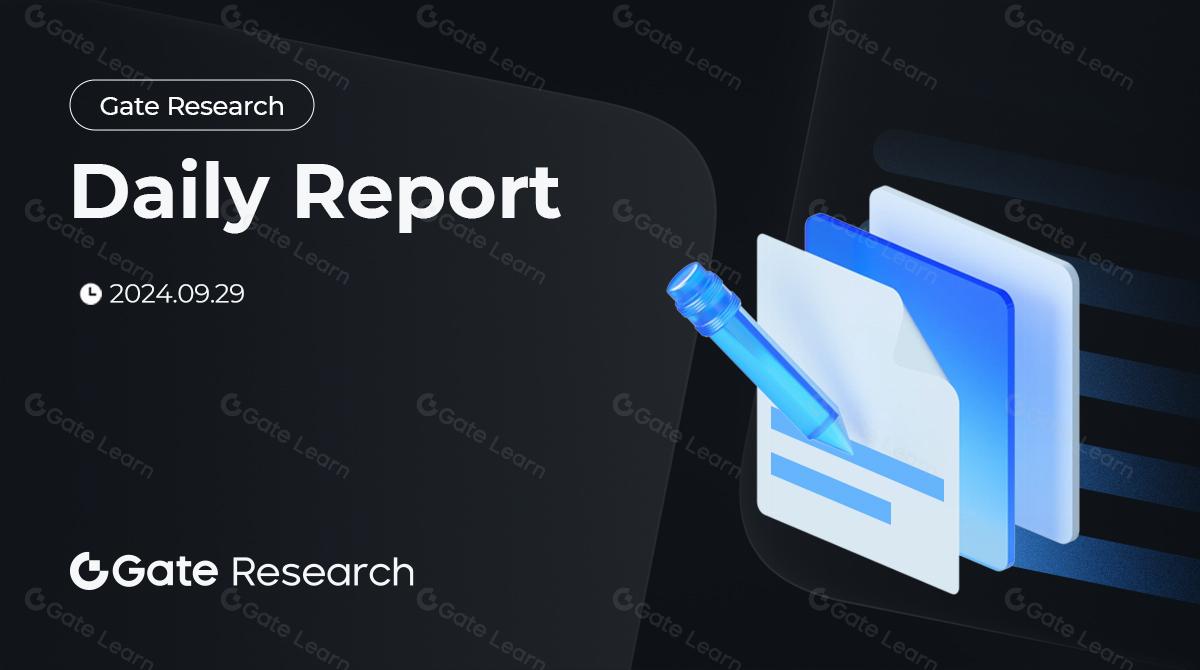Gate Research: Tópicos Quentes Semanais (24 a 28 de março de 2025)
Visão geral
Este relatório destaca os principais desenvolvimentos na indústria de blockchain de 24 a 28 de março de 2025. A Carteira Gate.com integrou oficialmente o suporte para Berachain, aprimorando tanto a segurança quanto a liquidez; PancakeSwap liderou o volume de negociação semanal entre DEXs, com um aumento notável de mais de 40% no volume semanal; Berachain lançou seu sistema PoL, permitindo governança descentralizada impulsionada pela liquidez; Nillion Alpha foi lançado em sua mainnet, avançando o desenvolvimento de infraestrutura de preservação de privacidade para Web3; PumpSwap registrou um volume diário de negociação superior a $580 milhões, capturando 19.2% da participação de mercado do ecossistema Solana; Hyperliquid sofreu um ataque de manipulação, intensificando as preocupações com confiança e segurança.

Projetos
Carteira Gate.com Oficialmente Suporta Berachain, Melhorando a Segurança e Liquidez
Em 25 de março de 2025, a Gate.com Wallet anunciou oficialmente seu suporte ao Berachain, uma blockchain de Camada 1 renomada por seu mecanismo de consenso Proof of Liquidity (PoL). Essa integração aprimora a segurança de ativos e a liquidez de transações para os usuários, ao mesmo tempo em que oferece um acesso mais amplo ao ecossistema Berachain. Especificamente, a Gate.com Wallet agora permite que os usuários armazenem, enviem e recebam os tokens nativos do Berachain, aproveitando as tecnologias de armazenamento a frio e criptografia da Gate.com.
O suporte à Berachain permite que a Carteira Gate.com ofereça uma gama mais ampla de escolhas de ativos de blockchain, atraindo usuários interessados em tecnologias de blockchain emergentes. Essa iniciativa provavelmente também atrairá mais atenção para as características exclusivas da Berachain, potencialmente aumentando o volume de negociação e o número de usuários ativos. Com as robustas medidas de segurança da Gate.com, incluindo armazenamento a frio e tecnologia de múltiplas assinaturas, os usuários da Berachain podem desfrutar de uma proteção de ativos aprimorada, aumentando a confiança na plataforma.
PancakeSwap Ranks First in Weekly DEX Trading Volume, Up Over 40%
O volume semanal de negociação da PancakeSwap disparou de aproximadamente $9,94 bilhões na semana passada para $14,1 bilhões, refletindo um aumento de 41,93%, garantindo a primeira posição no volume de negociação da DEX. Essa performance contrasta fortemente com a do Uniswap, que registrou um volume de negociação semanal de $8 bilhões (queda de 43,83% em relação à semana anterior) e do Raydium, que registrou $2,5 bilhões (queda de 17,32%), destacando o forte momentum da PancakeSwap no mercado atual.
O aumento do volume da PancakeSwap provavelmente é impulsionado pela popularidade de moedas meme como Four.meme. O lançamento de tokens quentes como contratos perpétuos MUBARAK e BANANAS31 atraiu traders em busca de altos retornos. Além disso, as recentes inovações da plataforma, incluindo a ferramenta de criação de tokens sem código SpringBoard, a introdução de um novo bot de negociação no Telegram e sua expansão para o Polygon zkEVM, provavelmente contribuíram para o crescimento de sua base de usuários e domínio de mercado.
Berachain Lança Oficialmente o Sistema PoL para Habilitar Governança Descentralizada Impulsionada pela Liquidez
Em 24 de março de 2025, Berachain, uma blockchain de Camada 1 compatível com EVM, lançou oficialmente seu sistema de Prova de Liquidez (PoL), marcando o início da primeira fase de sua governança on-chain. Este sistema tem como objetivo promover uma governança descentralizada mais ampla, distribuindo tokens de governança (BGT) por meio de pools de liquidez DeFi e ao mesmo tempo melhorando a liquidez dentro do ecossistema. Os incentivos iniciais se concentrarão em pools de liquidez DEX específicas, com planos para expandir para mais vaults de recompensa no futuro.
O modelo PoL da Berachain permite aos usuários injetar ativos em pools de liquidez sem bloqueá-los, ganhando tokens de governança (BGT) em troca. Os usuários podem delegar seu BGT para influenciar o peso do validador, integrando efetivamente mecanismos de governança e liquidez. Este design inovador melhora a eficiência de capital, reduz as barreiras de participação do usuário e espera atrair um influxo significativo de liquidez DeFi para o ecossistema. Este modelo introduz um paradigma mais orientado para o mercado para a governança de blockchains públicas, aumentando a atividade e segurança da rede.
Nillion Alpha Mainnet Goes Live, Avançando a Infraestrutura de Computação de Privacidade Web3
A rede de computação de preservação de privacidade Nillion anunciou o lançamento oficial de sua mainnet Alpha, marcando uma etapa significativa em seu desenvolvimento de tecnologia de computação segura distribuída. A Nillion especializa-se em proteção de privacidade e computação segura, permitindo a computação de várias partes e colaboração de dados sem expor dados sensíveis. A mainnet Alpha é principalmente aberta para desenvolvedores, apoiando a criação de aplicativos descentralizados (dApps) construídos no protocolo Nillion e fornecendo suporte fundamental para privacidade de dados e colaboração entre cadeias.
A computação de privacidade é considerada um componente crítico da infraestrutura da Web3, e o lançamento da mainnet da Nillion injeta novo impulso neste espaço. À medida que a demanda por processamento de dados seguro, treinamento de privacidade de IA e aplicações similares continua a aumentar, redes de computação de privacidade de alto desempenho e prontas para conformidade, como a Nillion, provavelmente atrairão maior atenção do mercado e suporte de capital.
O volume diário de negociação da PumpSwap ultrapassa US$ 580 milhões, capturando 19,2% do ecossistema da Solana
PumpSwap, uma nova bolsa descentralizada (DEX) lançada pela Pump.fun, testemunhou um crescimento explosivo desde sua estreia em 19 de março na rede Solana. Em seu primeiro dia, a plataforma registrou um volume de negociação de $50 milhões, que rapidamente disparou para um pico diário de $580 milhões em 25 de março. O volume de negociação cumulativo da plataforma ultrapassou $1.5 bilhão, com sua participação de mercado dentro do ecossistema Solana subindo para 22.4%. Além disso, o PumpSwap processou mais de 11 milhões de transações, com sua base de usuários ativos atingindo 388.000. O PumpSwap, lançado pela Pump.fun, tem como objetivo criar um ambiente de negociação descentralizado sem atritos, especificamente adaptado para a negociação de memecoins, otimizando a liquidez e a experiência do usuário.
A rápida ascensão da plataforma pode ser atribuída à sua capacidade de reduzir o atrito na negociação de memecoins. Anteriormente, as memecoins emitidas na Pump.fun tinham que ser migradas para Raydium para negociação, um processo complexo que prejudicava a eficiência das transações. O PumpSwap simplificou esse processo com um mecanismo de migração instantâneo e sem taxa, melhorando significativamente a experiência do usuário. Além disso, a alta atividade de negociação da plataforma gerou receitas substanciais. O PumpSwap acumulou mais de $2,1 milhões em taxas, com $1,5 milhão alocados como receita do protocolo e $540.000 distribuídos aos provedores de liquidez, melhorando ainda mais a atratividade de seu ecossistema.
Ataque de Manipulação do Hyperliquid, Crise de Confiança Aprofunda
Em 26 de março de 2025, um trader abriu uma posição curta de $6 milhões na JELLYJELLY na Hyperliquid, apenas para elevar o preço por meio de grandes ordens de compra, desencadeando a liquidação forçada e transferindo o ônus para o pool de liquidez da Hyperliquid (HLP). Isso levou a perdas potenciais para o pool HLP, levando a Hyperliquid a deslistar o contrato JELLYJELLY e se comprometer a compensar os usuários afetados (excluindo endereços sinalizados envolvidos em manipulação). Embora a plataforma tenha relatado um lucro de $700.000 USDC nas 24 horas anteriores ao evento, saídas líquidas de $140 milhões seguiram, sinalizando uma grave erosão da confiança.
O incidente expôs vulnerabilidades na gestão de risco da Hyperliquid ao lidar com ativos de baixa liquidez. Embora as medidas de deslistagem e compensação possam ter evitado um colapso financeiro imediato, o compromisso da plataforma com a governança descentralizada tem sido questionado, especialmente considerando que os nós validadores são controlados principalmente pela Fundação Hyper. À medida que a confiança do usuário diminui e as saídas de capital aumentam, a Hyperliquid enfrenta desafios de estabilidade a longo prazo.
As exchanges centralizadas (CEXs) podem aproveitar essa oportunidade para atrair usuários desiludidos, especialmente à medida que a reputação do Hyperliquid é afetada. Outras DEXs também podem aprender lições valiosas com esse evento, incentivando melhorias na gestão de riscos e na estrutura de governança. Esse incidente destaca os desafios que as DEXs enfrentam na mitigação da manipulação de mercado e na garantia da estabilidade da plataforma, o que pode acelerar melhorias em toda a indústria na avaliação de riscos e nos frameworks de governança. As autoridades reguladoras também podem intensificar a supervisão das DEXs, potencialmente levando o setor a adotar padrões de governança mais transparentes.
Aviso
Os usuários devem ter cautela ao participar, estar cientes dos riscos e realizar uma pesquisa minuciosa antes de se envolver. Gate.com não garante o desenvolvimento futuro dos projetos.
Referências:
- X,https://x.com/GateWallet/status/1904443183163170873
- Defillama,https://defillama.com/dexs
- X,https://x.com/berachain/status/1903227859675623591
- X,https://x.com/nillionnetwork/status/1904157582203207738
- Duna,https://dune.com/adam_tehc/pumpswap
- Defillama,https://defillama.com/protocol/hyperliquid-hlp
Pesquisa Gate
A Gate Research é uma plataforma abrangente de pesquisa de blockchain e criptomoedas que fornece conteúdo detalhado. Isso inclui análises técnicas, insights sobre tópicos quentes, revisões de mercado, pesquisas da indústria, previsões de tendências e análises de políticas macroeconômicas.
Clique aquivisitar agora
Aviso Legal
Investir no mercado de criptomoedas envolve alto risco, e é recomendado que os usuários conduzam pesquisas independentes e compreendam completamente a natureza dos ativos e produtos que adquirem antes de tomar qualquer decisão de investimento. Gate.com não é responsável por quaisquer perdas ou danos causados por tais decisões de investimento.
Artigos Relacionados

Pesquisa da Gate: A Evolução da Cripto: Plataforma de Negociação e Volume de Negócios

Gate Research: Dados Insights Por Trás do Crescimento Rápido da Memecoin Launchpad Pump.fun

gate Research: Relatório de Backtest de Produtos de Auto-Investimento

Como encontrar novas memecoins antes delas se tornarem virais

Gate Research: Circulação USDC Aumentou em 700 Milhões Dentro de uma Semana, 68% dos Endereços ETH Agora Lucrativos
